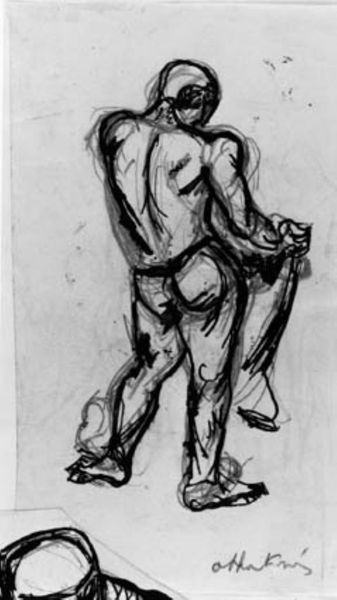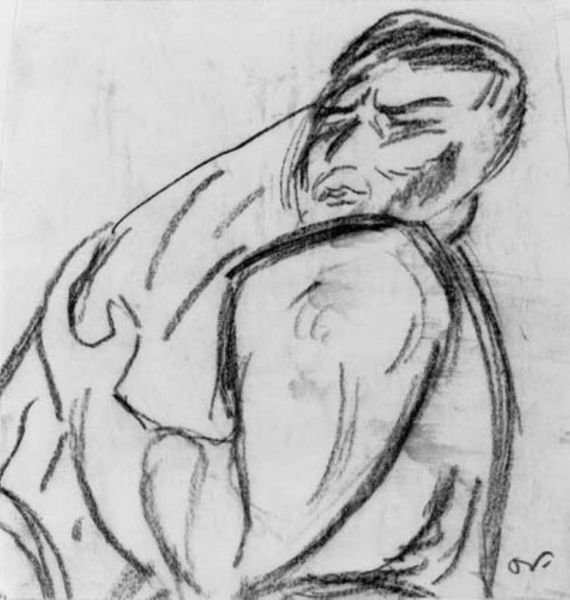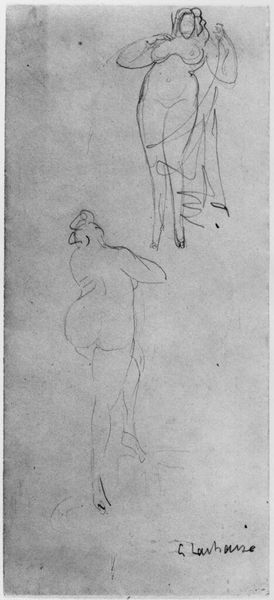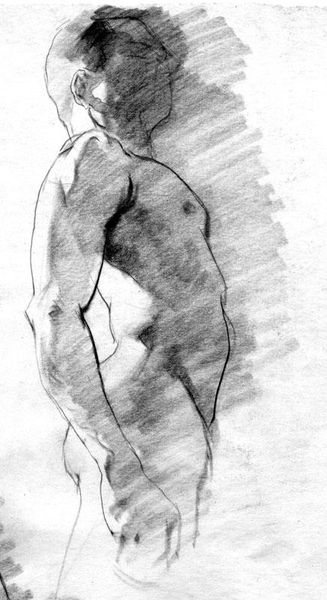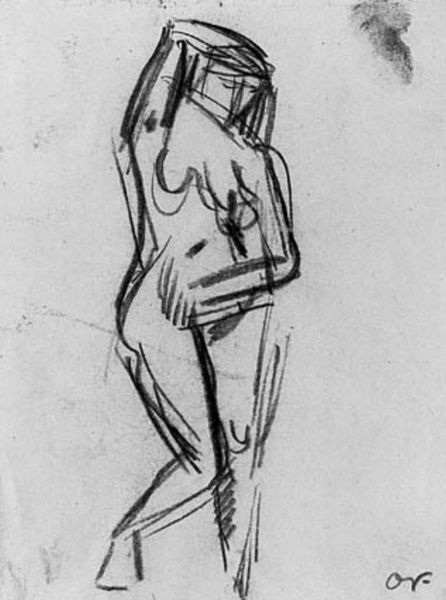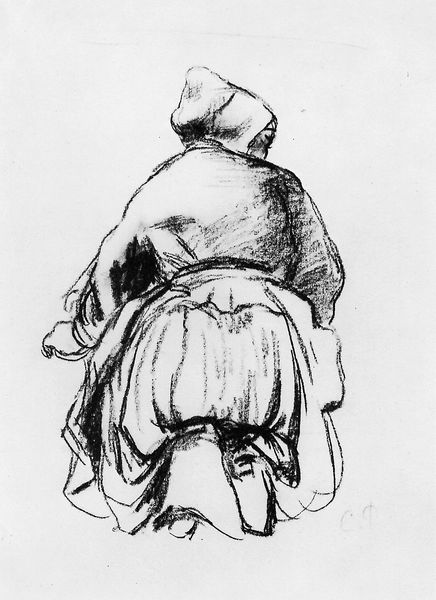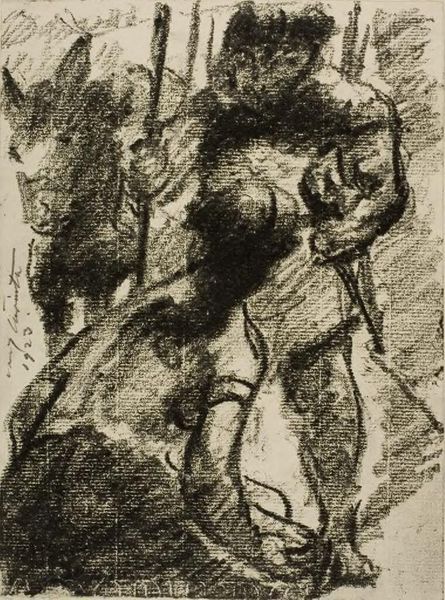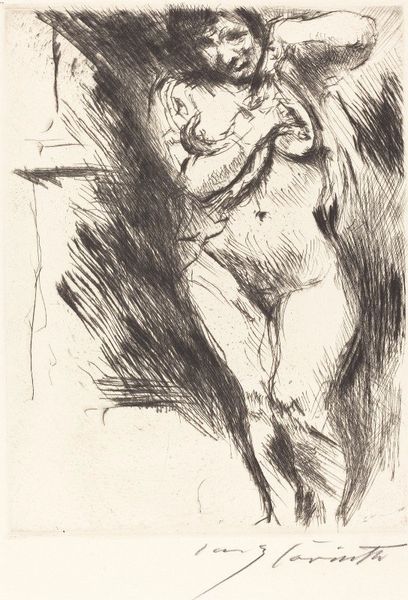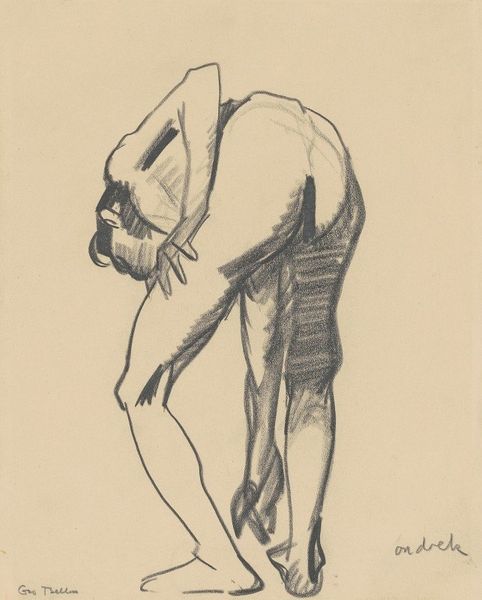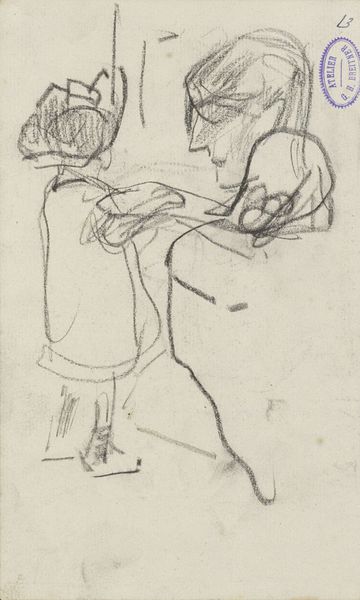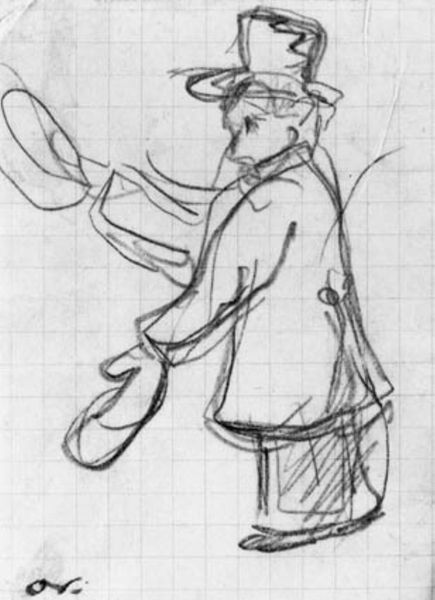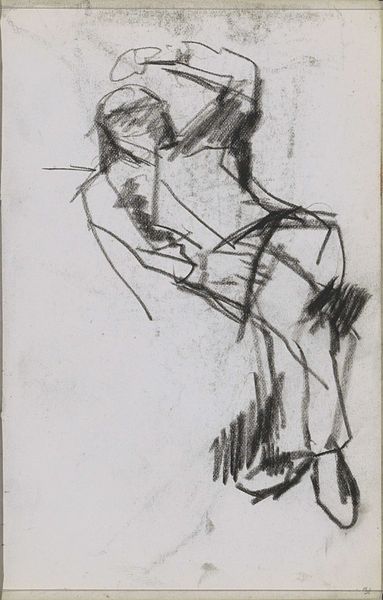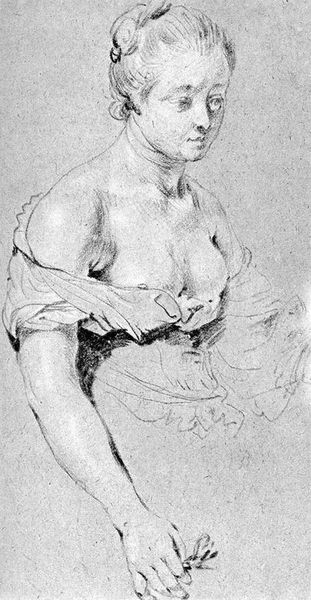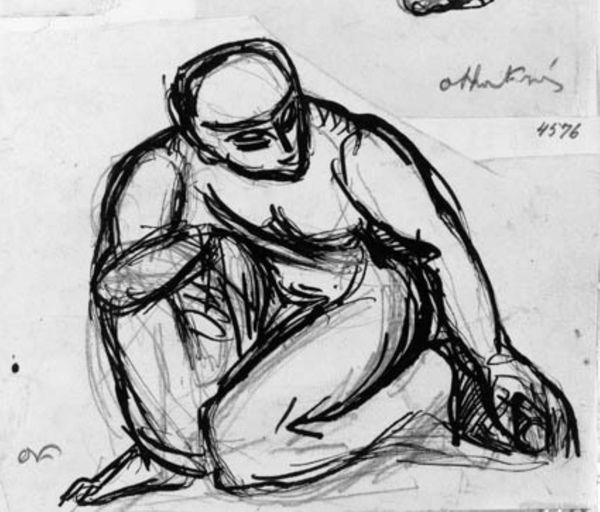
drawing, pencil, charcoal
#
portrait
#
drawing
#
pencil
#
charcoal
#
realism
Copyright: Public domain
Curator: I'm struck by the dynamism of the lines; it's incredibly immediate. Almost raw in its simplicity. Editor: Indeed. Let’s consider "Drawing of a Workman," executed in charcoal and pencil. Here we observe Eakins' concern with realistic depiction, rendering the figure with gestural energy while prioritizing anatomical fidelity. Notice how the light is blocked by the dark lines as the worker leans forward at rest or work. Curator: The apparent immediacy belies a sophisticated understanding of form, doesn't it? Look at how the stark contrasts carve out the figure's musculature. We see it isn't simply a drawing; it’s almost a sculptural investigation into the human form. He's also alone and to me, vulnerable. Editor: I see what you mean. Beyond formal considerations, the very act of depicting a worker places the emphasis on labor itself. The rapid, almost frantic lines suggest not only movement but perhaps also the grueling nature of the worker’s tasks, even the pose suggest a momentary reprieve. Curator: It's also compelling that Eakins elevates a common subject through the artistic process. The composition feels experimental, breaking from traditional portraiture and offering an intimate glimpse into everyday existence. How would one interpret the negative space surrounding the figure? Editor: That spaciousness around him gives this worker his due and it's possible the emptiness can speak to a sense of isolation inherent in repetitive manual work, raising questions about class and representation. Curator: Fascinating, isn't it, how Eakins uses a relatively simple medium to create such complex interplay between form, labor, and society? Editor: Absolutely. The drawing, with its raw aesthetic, serves as a compelling historical and material document and an aesthetic exploration of the value of labor.
Comments
No comments
Be the first to comment and join the conversation on the ultimate creative platform.
